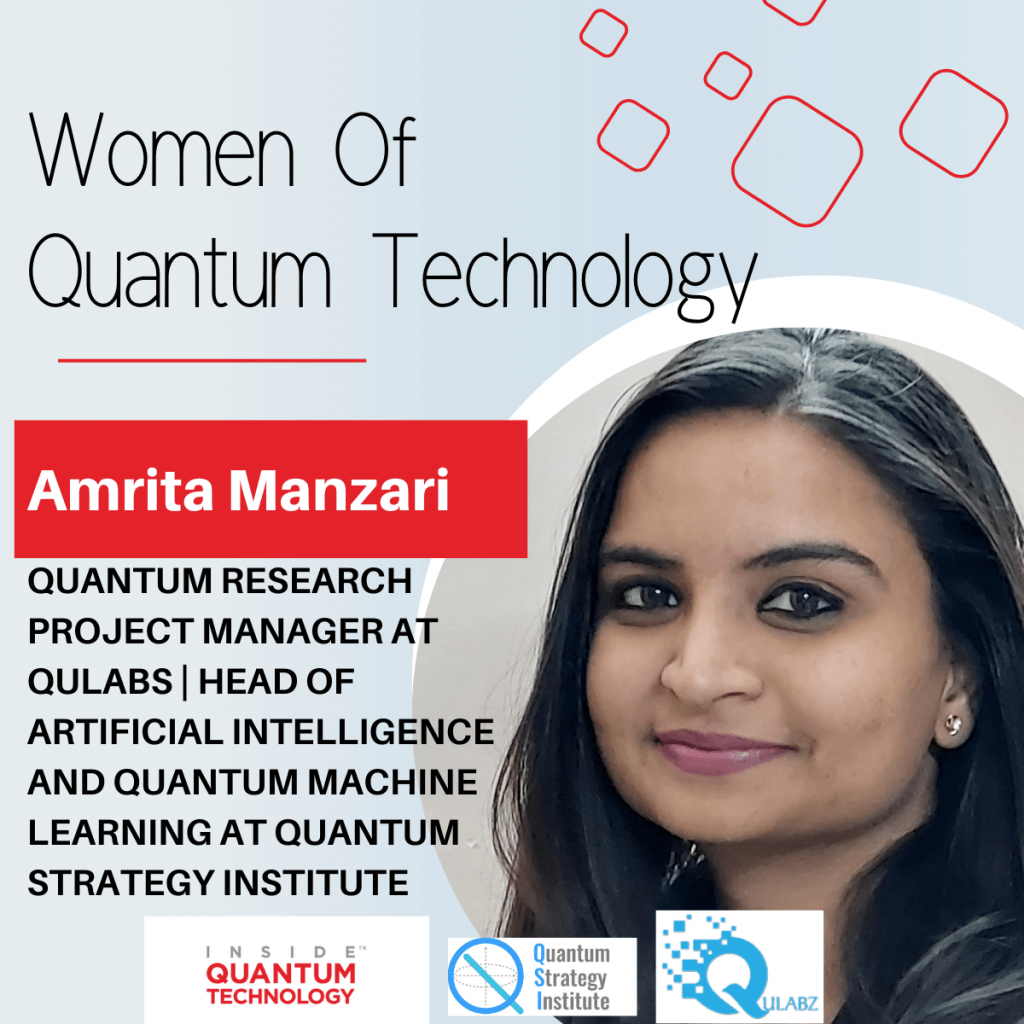For people like Amrita Manzari, Quantum Research Project Manager at Qulabs and Head of AI and Quantum Machine Learning (QML) at the Quantum Strategy Institute (QSI), learning about quantum computing is more than just a job. “It’s not something related to my career enhancement but instead is much more related to my life passion,” Manzari explained. Her journey into the quantum industry took many years but was totally worth it. Manzari’s love of quantum began in childhood with a love of astronomy. “I used to just stare at the stars for hours and hours,” she added. “And I used to introspect, wondering how the entire thing worked. It was much too difficult to understand at the time, but it fueled my curiosity toward understanding complex ideas like quantum gravity and physics.” In high school, Manzari was exposed to lectures by Richard Feynman, arguably considered one of the best teachers of quantum physics. “I didn’t understand it completely, but I was motivated to learn more.” It would take Manzari eight more years to return to quantum physics, after receiving her degree in computer engineering and working in the software industry. “Now I think it’s the right time,” Manzari said. “I’m actually in the quantum domain and working with all of these brilliant people around me. It’s been a wonderful life journey.”
As quantum computing is still a new field, Manzari, like many individuals, had to do a lot of self-learning to transition into the industry. “For the past five years I’ve been self-learning, which has been really intense,” Manzari explained. “How we are communicating today wasn’t that evident five years back. Now it’s a completely different atmosphere.” Many others within the quantum industry agree that it’s only been a recent change, in part due to COVID-19, that networking and learning within the industry has been easier.
Part of Manzari’s self-learning included joining QSI, a network of individuals also passionate about deploying quantum technology in business. According to Manzari: “They’re a group of people who shares a common ideology and has a mission to bring quantum technology to the global platforms and industry. It is very unique because till now everyone had been doing everything on the research side and QSI puts a lot of effort into the financial and business side.” As the head of AI and QML, Manzari is specifically focused on managing teams and developing strategies for deploying QML technology in businesses or other projects. She also leverages her background in software engineering to help expand the quantum workforce. “I also work very exclusively in transforming the current software workforce,” Manzari stated. “Because I am from the software background, I’m very close to the people who have software background and really want to move into the quantum domain. So, I use my skills to help transform the classical computing industry into more of a quantum one.”
More recently, Manzari has joined Qulabs, a global leader in quantum communications, quantum security, quantum AI, and Q=quantum chemistry that focuses on building solutions to significant problems that will demonstrate the advantage of quantum technologies as a landmark achievement on the path to applicable, large-scale quantum computers.
As a Quantum Research Project Manager at Qulabs, Manzari leads projects for quantum communications, quantum memory, and quantum AI. “I work very closely with all the research scientists, engineers, and professors who are part of QuLabs and they are all scattered across India,” she stated. “So, it’s helping me to align the roadmap of Qulabs in these domains for our short and long-term goals.” Manzari finds that her job at Qulabs also involves lots of strategy. As Manzari explained: “I develop strategic initiatives for Qulabs, like translating research into quantum development or enhancing quantum workflows. The major concern in the quantum community is that we have a huge gap in the quantum workforce. So that’s where we are trying to enhance this workforce, especially in India.” Thanks to her position and multiple roles developing quantum strategies, Manzari believes she can do her part to help India become a world leader in quantum technology.
Using her expertise in strategic thinking, Manzari offers several insights into making the industry more inclusive and closing the workforce gap. “When we talk about diversity and the industry, right now we really need people from all segments, because you never know if that gold-level talent is just sitting somewhere, in some corner of the world,” Manzari stated. “I join a lot of conferences and lectures and I see people from many different sectors, and that makes me feel glad; as now people are actually moving toward this area.” While Manzari sees more interest in quantum technology, the workforce gap is still there, and she believes the lack of an established pipeline is the main cause. “I do hiring every day,” she said. “And I see huge gaps in talent and workforce even at higher institutional levels for people in STEM. This makes me think that workforce in STEM needs to evolve, whether it’s women or men, or individuals of different backgrounds, we really need people in here. And I believe now is a perfect time for people to join, especially in quantum. As both society and industry are evolving, I think we will reach there, where we have more inclusivity in our workforce.”
Kenna Hughes-Castleberry is a staff writer at Inside Quantum Technology and the Science Communicator at JILA (a partnership between the University of Colorado Boulder and NIST). Her writing beats include deep tech, the metaverse, and quantum technology.
